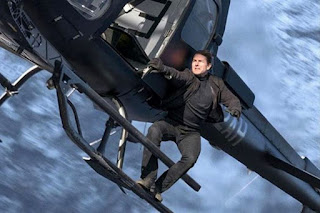Winter reading
When I was in college, between the end of Christmas break and the first-semester exams was Reading Period, about 10 days where students were given a chance to prepare for their tests. These days, I still have a Reading Period of sorts, between Christmas and the resumption of my teaching at the University of Akron, when I just dive into books. The current stack is above.
It's not that I cannot read the rest of the time; before tackling my post-holiday reading, I spent happy time with an advance copy of The Sopranos Sessions, a detailed examination of the landmark series by my friends Alan Sepinwall and Matt Zoller Seitz, which is officially available in a week. I also read Thomas E. Ricks's Churchill and Orwell: The Fight for Freedom, and dipped into the Library of America's collection of Carson McCullers's Stories, Plays and Other Writings, which LOA had made available at a nice discount. For a school project, earlier in the fall, I had read Tara Westover's Educated, which I very much admired (and which has landed on a lot of year's-best lists, including Barack Obama's) and several other books. And not that long ago I devoured every book by Megan Abbott; you should do likewise. Still, during the school year, when I devote most of my reading time to student papers, it feels as if I've been neglecting other reading. Hence the deep dive during this break. So, lately:
 Naomi Alderman's Power is an older work but one I just came to, as a gift from my older son. It bears endorsements from Obama and from Margaret Atwood, and the latter is of particular importance since, like Atwood's The Handmaid's Tale, Power is about the way the cutlture denies power to women. The book then ponders what would happen if they received new, supernatural strength. In the book, women suddenly discover they have a previously unknown individual force, one that tips the balance in their relationships with men, and which gives women a chance to take control of communities, nations, maybe even the world. But will women with power be any different from men in their pursuit and use of authority? Will they be more ethical, more kind, than men have been -- or is there something about the lure of power that has nothing to do with gender? Alderman wraps such questions in a thriller of a plot, but never lets the twists, turns and terror bury the bigger issues at work.
Naomi Alderman's Power is an older work but one I just came to, as a gift from my older son. It bears endorsements from Obama and from Margaret Atwood, and the latter is of particular importance since, like Atwood's The Handmaid's Tale, Power is about the way the cutlture denies power to women. The book then ponders what would happen if they received new, supernatural strength. In the book, women suddenly discover they have a previously unknown individual force, one that tips the balance in their relationships with men, and which gives women a chance to take control of communities, nations, maybe even the world. But will women with power be any different from men in their pursuit and use of authority? Will they be more ethical, more kind, than men have been -- or is there something about the lure of power that has nothing to do with gender? Alderman wraps such questions in a thriller of a plot, but never lets the twists, turns and terror bury the bigger issues at work.
Back in the '70s when I read more science fiction, I had a paperback called Women of Wonder which collected notable SF stories written by women. I think it's the first place I read Anne McCaffrey, but there were many other gems in it. Some of those very gems are also in The Future Is Female! which collects 25 stories from 1928 to 1969 (Ursula K. LeGuin has the last contribution) in a nice Library of America edition. he stories adopt some standard SF tropes (space travel, changing technology) but in ways that remain freshly readable. The cover photo -- a Richard Avedon rendering of Jean Shrimpton -- is pretty nifty, too.
This is work product of a sort; I had read bits of it in a library copy and saw passages that I could use in my freshman composition classes, so now I have a copy to fill with margin scribbles. (Well, not yet. But I did jot down page numbers on my bookmark as I went along.) Derived from a series of speeches, it has Margaret Atwood discussing what makes a writer write, the relationship with the reader, and other topics with so many accompanying references that I wondered how someone who has spent so much time reading has also found time to write, let alone to write so well.
Plenty more yet to read. But school starts up again in about 10 days.





Comments
Post a Comment